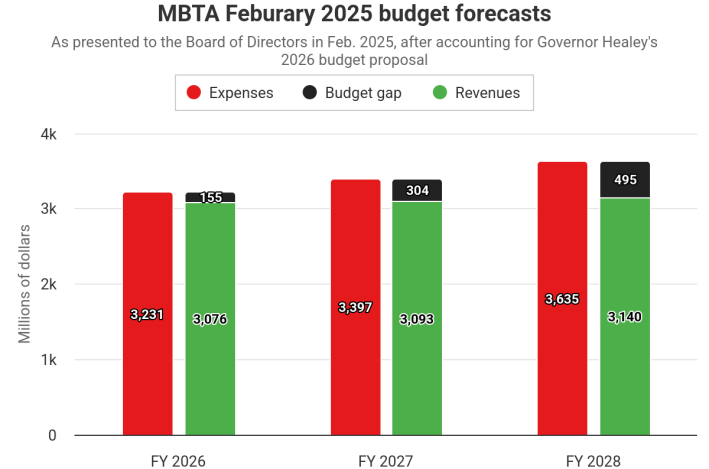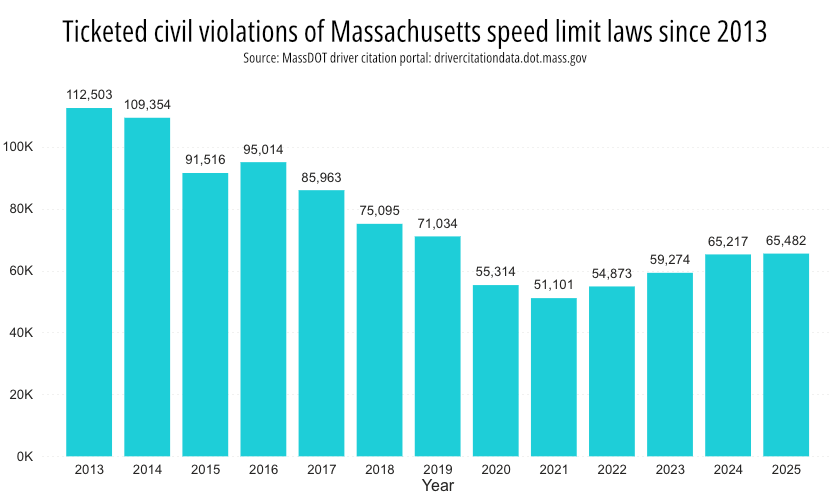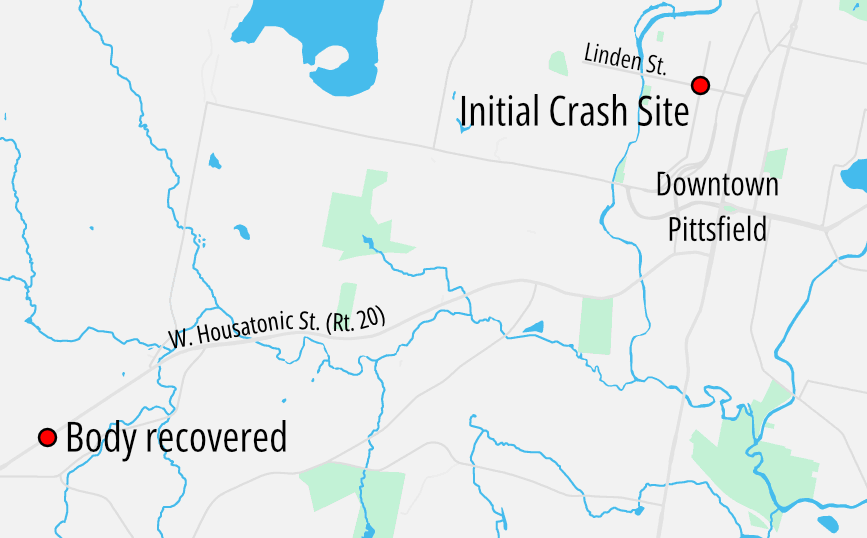At its monthly board meeting on Tuesday, the MBTA revealed that its budget deficit for 2026 would be larger than previously estimated, but assured riders that they could fill the gap without service cuts by drawing from its reserve funds.
"The MBTA's short-term financial situation in the operating budget is stable, but there are risks, especially at the federal level, that we must monitor," MBTA budget director Joe Regan told board members on Tuesday afternoon.
But Regan also shared budget forecasts that predicted its deficit would grow to nearly half a billion dollars by 2028 – and that's after accounting for a $500 million increase in annual state funding from the Governor's proposed budget.

Growing costs, uncertain revenues
Previous budget forecasts estimated that the T would need $3.1 billion to cover its operating costs in 2026.
But Regan and his colleagues now expect that they'll spend over $3.2 billion next year, with higher-than-expected labor costs accounting for most of the increase.
Furthermore, those operating expenses are expected to grow at an annual rate of 7 percent, while the MBTA's revenues – the sales tax, Fair Share revenue, and fares – are expected to grow at a slower 5.6 percent rate.
For the short term, the T can paper over the budget gap with reserve funds, but Regan also said that the agency would look for $78 million in unspecified "cost savings" next year.
Repair and modernization projects also underfunded
Board members also got an update on the agency's next 5-year capital investment plan (CIP).
The capital budget is where the T has an opportunity to address its $25 billion "state of good repair" backlog with bridge repairs, station renovations, and new vehicles.
This year's CIP will have more money, thanks to an infusion of new state-backed bonds that Governor Healey has authorized, plus money that the T has won from several federal discretionary grants (the biggest of which is the $472 million grant it won last year to replace the Draw One Bridge over the Charles River).
But even with those additional funds, next year's capital budget won't come close to meeting the agency's actual needs.
The MBTA's departmental managers requested funding for $7.7 billion worth of projects in the next 5-year CIP, but the T expects to have only $1 billion available this year for new projects.





